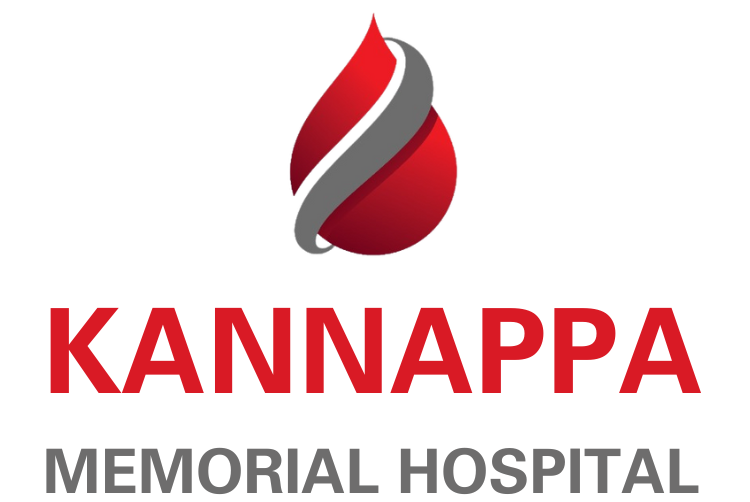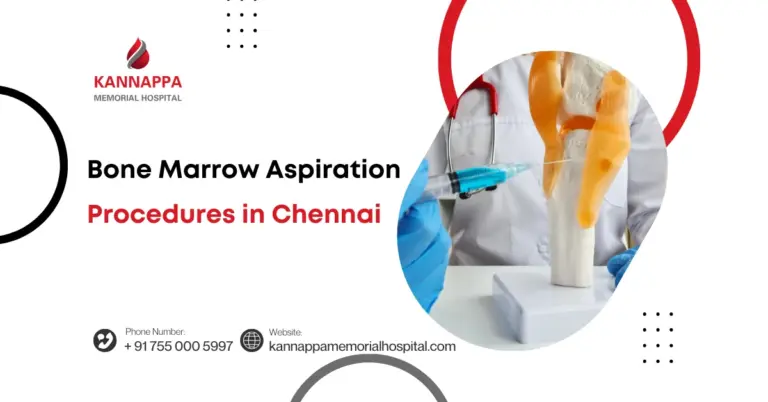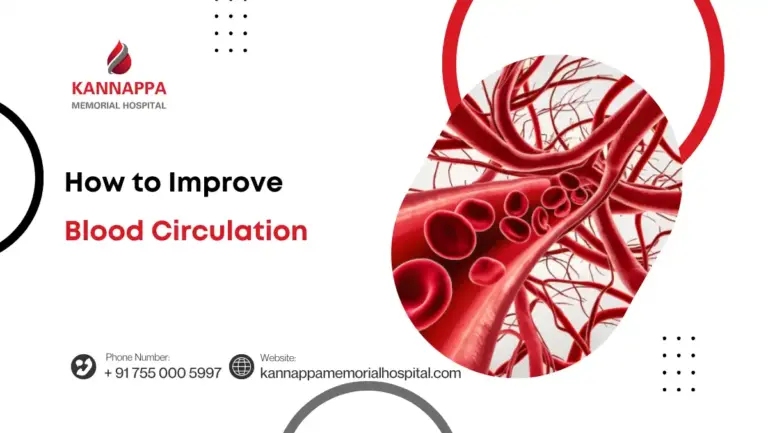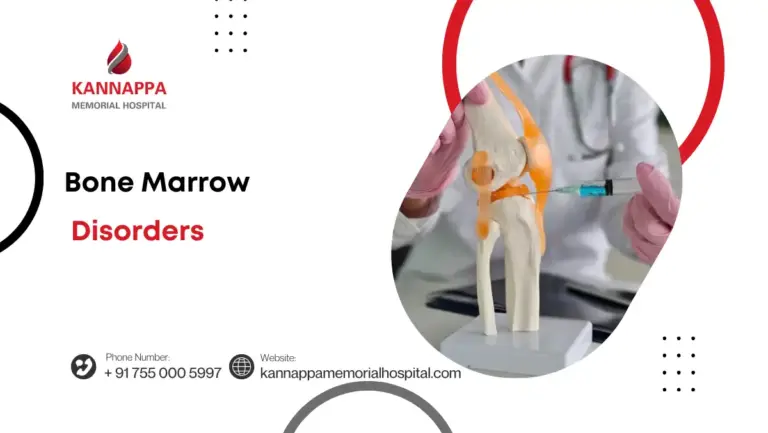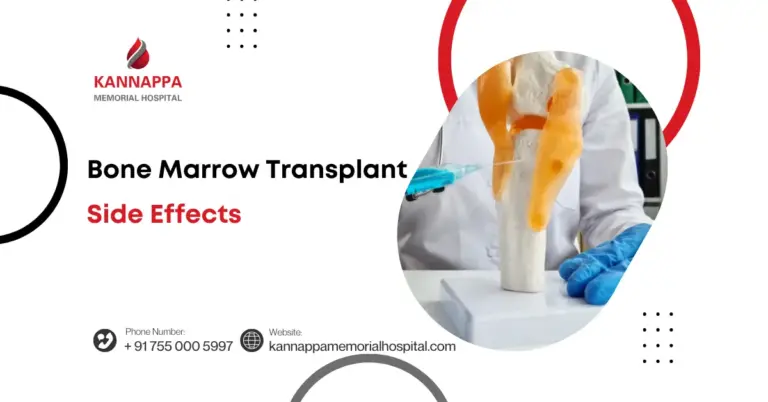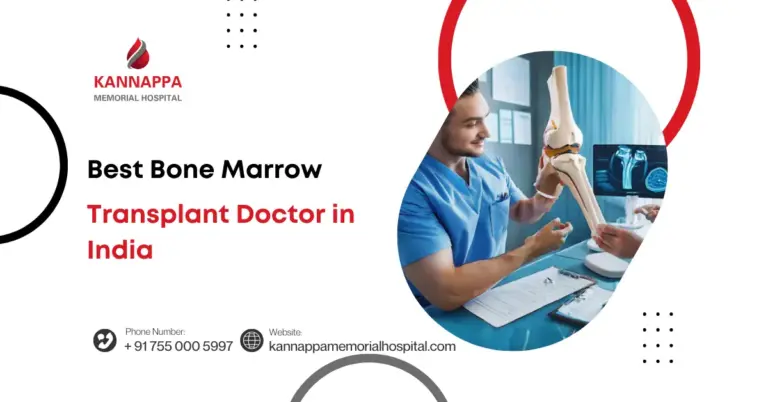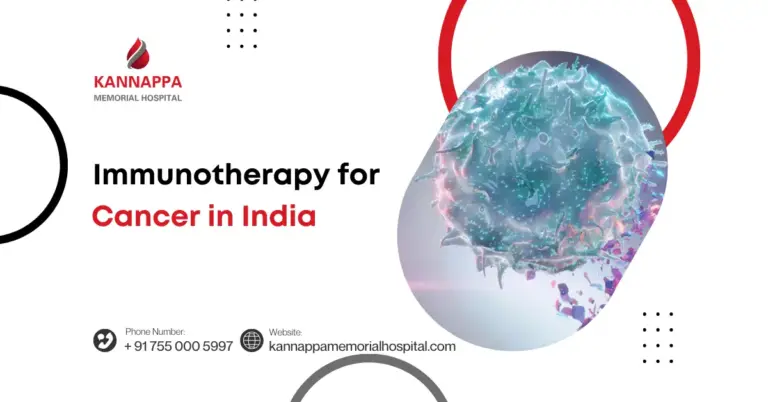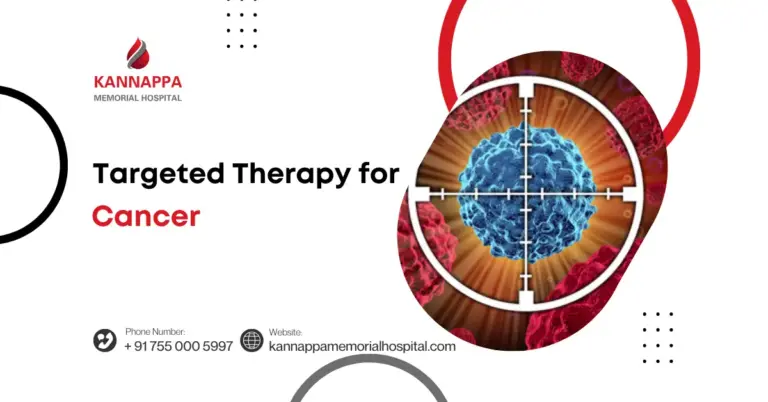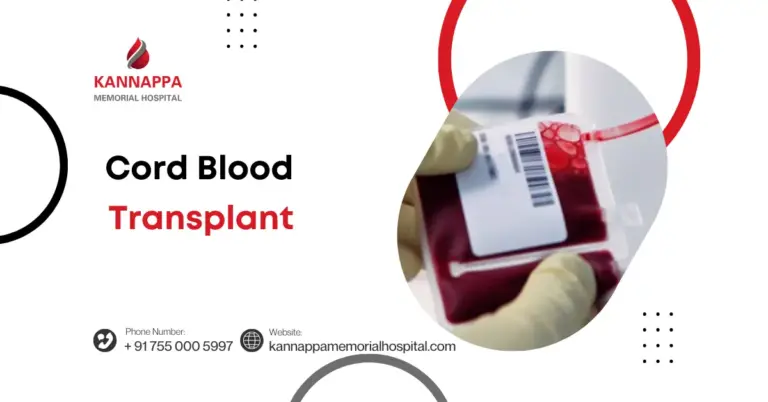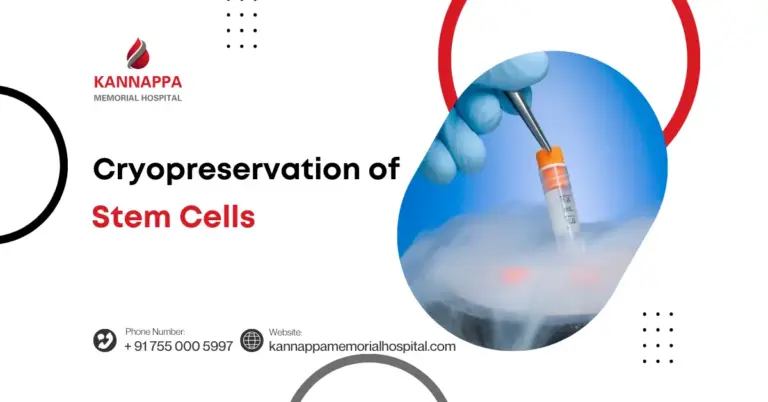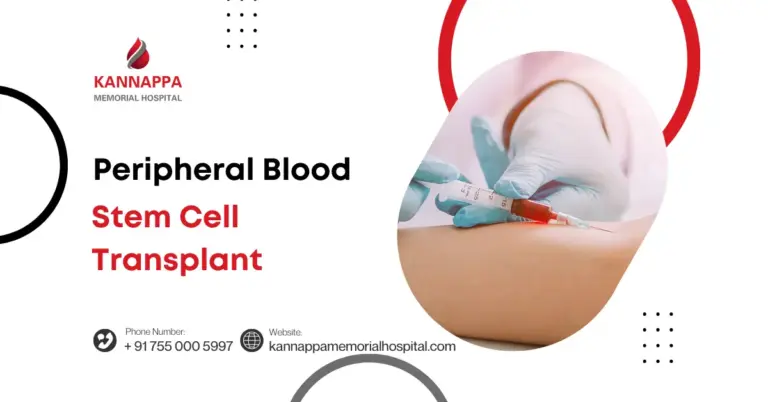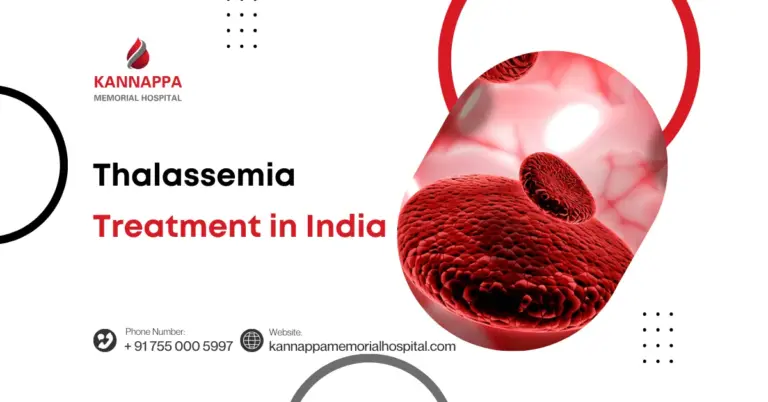Bone marrow aspiration is a medical procedure performed to collect a small portion of the soft, spongy tissue inside specific bones, which is essential for the production of blood cells. This minimally invasive procedure helps doctors diagnose and monitor various blood disorders, cancers, and infections, as well as assess marrow function before treatments like transplants. During the process, a thin needle is inserted into a bone, often the hipbone, to extract the sample for laboratory analysis. With advancements in medical care, Bone Marrow Aspiration Procedures in Chennai are performed with high precision, ensuring patient comfort and accurate diagnostic outcomes.
Why might I have a Bone Marrow Aspiration?
A bone marrow aspiration may be recommended when doctors need direct insight into how your bone marrow is functioning or to diagnose certain blood-related conditions. This procedure provides valuable information that cannot be obtained through standard blood tests alone, helping to identify underlying disorders, guide treatment planning, and monitor disease progression. The reasons for undergoing Bone Marrow Aspiration Procedures in Chennai vary, but they often revolve around uncovering the exact cause of abnormal blood results, confirming or ruling out serious conditions, and ensuring the most effective course of care, including preparation for treatments such as a bone marrow transplant.
- Understanding Risks and Aftercare: Complications of bone marrow aspiration in Chennai are uncommon when procedures are performed by trained hematology teams. Typical issues are brief pain, bruising, or minor bleeding; infection or significant bleeding is rare, and standardized sterile technique and careful pressure application reduce these risks.
Persistent Abnormal Blood Counts: Common Bone marrow aspiration indications in Chennai include unexplained anemia, low white cells, or low platelets that don’t resolve with routine care. Sampling the marrow clarifies whether the issue is poor production, immune destruction, or marrow infiltration, guiding precise treatment. - Suspected Blood Cancers: When leukemia, lymphoma, or myeloma is suspected, marrow examination confirms the diagnosis and subtype. It enables cytogenetics and molecular testing that inform prognosis and help tailor chemotherapy or targeted therapy.
- Detecting Spread or Infiltration: Some solid tumors (like breast or prostate cancer) and storage disorders can infiltrate marrow. Aspiration identifies metastatic cells or storage material, refining staging and influencing systemic therapy choices.
- Unexplained Fever or Systemic Inflammation: Marrow studies can uncover hidden infections (e.g., tuberculosis or fungal disease) or syndromes like hemophagocytic lymphohistiocytosis. This shortens diagnostic delays and helps start definitive therapy sooner.
- Monitoring Treatment Response: After chemotherapy or targeted drugs, marrow evaluation checks remission status and minimal residual disease. It differentiates treatment effect from relapse, allowing timely adjustments to the care plan.
- Transplant and Advanced Therapy Planning: Prior to stem cell transplant or intensive regimens, Bone Marrow Aspiration Procedures in Chennai assess cellularity, fibrosis, and iron stores to ensure readiness. Results also help select conditioning intensity and supportive care.
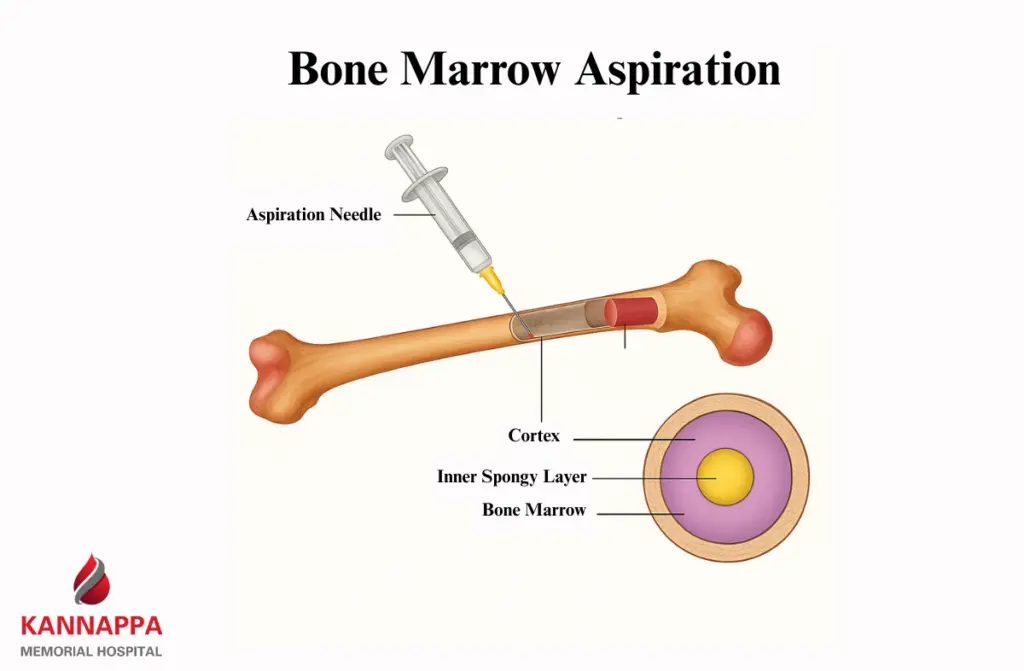
Who Performs a Bone Marrow Aspiration?
Bone marrow aspiration is a specialized procedure that demands technical skill and clinical expertise, making the selection of a qualified operator vital for precision and safety. Depending on the patient’s age, condition, and diagnostic needs, different specialists may perform Bone Marrow Aspiration Procedures in Chennai. These professionals are trained not only in obtaining an optimal marrow sample but also in minimizing discomfort, preventing complications, and ensuring that the collected material is immediately processed for accurate laboratory analysis.
- Hematologists / Hemato-Oncologists: The primary operators for Bone Marrow Aspiration in Chennai are board-trained hematologists who perform the procedure routinely. They select the safest site (usually the posterior iliac crest), obtain consent, administer local anesthesia, and ensure an adequate sample for downstream tests.
- Medical Oncologists and Fellows: In comprehensive cancer centers, oncologists and supervised trainees perform aspirations to stage leukemia/lymphoma or assess treatment response. They coordinate immediate tests such as smears, flow cytometry, and molecular panels to avoid repeat procedures.
- Pediatric Hematologist-Oncologists: Children are typically managed by pediatric specialists who tailor analgesia and sedation for comfort. Child-specific needles and gentle technique minimize trauma while achieving diagnostically useful marrow samples.
- Interventional Radiologists (Complex Cases): When anatomy is challenging obesity, prior pelvic surgery, or sclerotic bone image-guided operators may perform the aspiration. They use sterile, single-use devices, including a Bone marrow aspiration needle in Chennai, to access marrow safely under fluoroscopy or ultrasound.
- Anesthesiologists and Procedural Nursing Team: While not the primary operators, they provide sedation, monitor vitals, and manage immediate recovery. Their involvement reduces pain and anxiety and helps prevent complications like vasovagal episodes or bleeding.
- Pathologists / Laboratory Medicine Specialists: As part of Bone Marrow Aspiration Procedures in Chennai, pathologists often assess specimen adequacy at the bedside and direct on-the-spot tests. Rapid processing for cytogenetics and molecular studies preserves cell quality and enhances diagnostic yield.
What happens before a Bone Marrow Aspiration?
Before a bone marrow aspiration, the clinical team completes careful preparation to reduce risk and maximize diagnostic yield; this includes explaining the procedure, reviewing medical history, and ordering baseline tests as part of Bone Marrow Aspiration Procedures in Chennai.
- Medical assessment and baseline tests: The physician reviews your medical history, current medications, allergies, and any prior bleeding or infection issues, and orders baseline blood tests such as a complete blood count and coagulation profile. This evaluation identifies factors that could affect safety or sample quality and guides whether pre-procedure interventions are needed, especially in cases involving Hematologic Cancers.
- Medication management and bleeding risk: Anticoagulants, antiplatelet drugs, and some supplements may need temporary adjustment under medical guidance to lower bleeding risk; when necessary, platelet transfusion or correction of coagulopathy is arranged beforehand. These precautions specifically aim to minimize Complications of bone marrow aspiration in Chennai, such as prolonged bleeding or hematoma.
- Consent, explanation and sedation options: The team obtains informed consent and clearly explains the reason for the test, expected steps, and potential risks so you can make an informed decision. Choices between local anesthesia alone or light sedation are discussed and selected based on your medical status and comfort needs.
- Site selection and equipment readiness: Staff determine the optimal access site most commonly the posterior iliac crest and prepare sterile drapes, local anesthetic, and a single-use Bone marrow aspiration needle in Chennai sized appropriately for adults or children. If the pelvic anatomy is altered or access is difficult, image guidance is planned and interventional radiology may be involved to ensure safe needle placement.
- Day-of-procedure preparation and monitoring: On the day of the procedure you may be asked to fast if sedation is planned; nursing staff will establish IV access and record baseline vital signs while an anesthesiologist or sedation-trained clinician stands by if needed. Continuous monitoring reduces the chance of adverse events and allows rapid management of vasovagal reactions or unexpected bleeding.
- Final checks and specimen handling: For Bone Marrow Aspiration in Chennai, the team confirms patient identity, indication, and laboratory requests before collecting samples, then expedites processing for smears, cytogenetics, flow cytometry, and molecular studies to preserve cell quality. Post-procedure instructions are reviewed so you can recognize signs of Complications of bone marrow aspiration in Chennai, such as worsening pain, fever, or persistent bleeding, and know when to seek immediate medical attention.
What happens during a Bone Marrow Aspiration?
During a bone marrow aspiration the team follows a coordinated, sterile procedure: you are positioned, the skin is cleaned, and local anesthetic (with optional light sedation) is given to minimize discomfort; specialized teams performing Bone Marrow Aspiration Procedures in Chennai ensure samples are collected efficiently while monitoring safety.
- Positioning and anesthesia: The patient is positioned typically prone or on the side and the skin over the posterior iliac crest is prepared with antiseptic, then local anesthetic is infiltrated to numb the periosteum and surrounding tissue. The clinician explains sensations to expect, which commonly include pressure and a brief sharp twinge when the needle enters the marrow.
- Needle insertion and aspiration: In Chennai, a sterile bone marrow aspiration needle often a Jamshidi-type is guided through the anesthetized tract into the marrow cavity, where gentle suction is applied to collect liquid marrow into syringes for preparing smears and conducting specialized tests. Multiple small aliquots may be taken to ensure adequate material for cytology, flow cytometry, and molecular assays, reducing the likelihood of repeat sampling.
- Core biopsy when indicated: Often a core biopsy immediately follows aspiration using a slightly larger biopsy needle to obtain an intact tissue core for architectural assessment; this is especially helpful when marrow fibrosis or focal infiltration is suspected. Although the biopsy can cause more soreness afterward, it yields essential histologic and cytogenetic information.
- Monitoring and specimen handling: Vital signs are monitored throughout and collected specimens are labeled and sent promptly to the laboratory for smears, cultures, cytogenetics, and molecular studies to preserve cell viability. Pathology or laboratory staff may evaluate slide adequacy at the bedside so that additional sampling can be performed if needed.
- Hemostasis, recovery and complications: After needle removal firm pressure and a sterile dressing are applied while staff observe for immediate Complications of bone marrow aspiration in Chennai such as bleeding, hematoma, or vasovagal reactions; most patients rest briefly under observation before going home. The involvement of a specialist familiar with Hemostasis & Thrombosis is essential in patients with bleeding or clotting disorders to ensure safe recovery.
- Pain control and next steps: Mild soreness and transient bruising are common and usually managed with simple analgesics, whereas severe pain, fever, or persistent bleeding prompt prompt reassessment. When laboratory reports return, clinicians review the findings and outline further management, which may include additional tests, therapeutic planning, or transplant evaluation.
What can I expect after a Bone Marrow Aspiration?
After a bone marrow aspiration you will usually be observed briefly and given clear aftercare instructions; centers that perform Bone Marrow Aspiration Procedures in Chennai follow standard monitoring to reduce risk and protect specimen quality.
- Immediate recovery and monitoring: After the needle is removed, firm pressure is applied and nursing staff observe vital signs for 30–60 minutes. Any lightheadedness, nausea, or sedation-related effects are treated before discharge to ensure safe recovery.
- Pain and local symptoms: You can expect localized soreness, tenderness, and sometimes a small bruise at the entry site from the Bone marrow aspiration needle in Chennai, with discomfort typically peaking in the first 24 hours. Most patients find simple analgesics effective, and clinicians will advise which pain relievers are appropriate given your bleeding risk.
- Wound care and activity restrictions: The puncture site will be covered with a sterile dressing that should remain dry and clean for the period advised by staff, and soaking the area is usually avoided until healing is confirmed. Light daily activities may resume within 24 hours, but heavy lifting or strenuous exercise should generally be postponed for 48 hours or as directed.
- Possible complications and vigilance: Staff explain the Complications of bone marrow aspiration in Chennai, which while uncommon can include prolonged bleeding, hematoma, local infection, or persistent severe pain; serious events are rare when performed by experienced teams. Prompt evaluation is recommended if symptoms worsen, because early treatment limits sequelae and ensures safe recovery.
- Results and follow-up: Processing for smears, cultures, cytogenetics, and molecular tests may take from a few days up to two weeks depending on the studies ordered, and your clinician will schedule a follow-up to explain findings. The follow-up visit for Bone Marrow Aspiration in Chennai will outline implications of the results, including the diagnosis and management of Blood Disorders, as well as any further investigations or treatment planning.
- When to seek urgent assessment: Seek immediate medical assessment for heavy or increasing bleeding, spreading redness or pus at the site, fever, fainting, or escalating uncontrolled pain, as these signs may indicate a complication requiring urgent care. If any concerning symptoms arise after discharge, present to the treating team or the nearest emergency service for prompt evaluation.
Conclusion
Bone marrow aspiration procedures provide definitive diagnostic information that guides therapy for blood disorders, hematologic cancers, infections, and transplant planning. In Chennai, experienced, trusted hematology teams use precise technique, appropriate needles, and prompt laboratory processing to maximize diagnostic yield while minimizing complications. Patients can expect brief discomfort, rapid recovery, and clear follow-up once results are available; serious adverse events are rare when pre-procedure assessment and hemostatic measures are in place. If you are facing unexplained blood abnormalities or need staging or treatment monitoring, schedule a consultation with a hematologist at a reputable center to discuss whether marrow evaluation is warranted.
Read Also: Best Surgical Oncologists in Chennai
